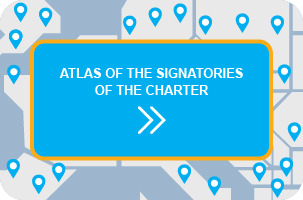Women in political decision-making positions Greece
With funding from the “Fundamental Rights and Citizenship” programme of the European Commission, the Greek association Family and Childcare Center in Greece (KMOP) implemented a project to promote and support women in decision-making positions in Greece at European, national and local level. The project focused on reaching political parties, as well as women’s organizations and the general public and consisted of the following activities:
- Analysis of the situation of gender balances representation in political decision-making in Greece – including a web survey,
- A training program to support women candidates in elections and
- Awareness-raising activities; organization of events, setting up of a website and printing of information material.
Some figures of the gender representation in political decision-making at local level in Greece:
- 10.6 % or 153 women were candidates for the position of Mayor in local elections compared to 89.4 % or 1288 men
- 15 women (4.6 %) were elected to the position of Mayor compared to 310 men (95.4 %)
- In regional elections 15.4 % of the elected regional governments were women
To better understand the situation and the general public’s opinion on women in political decision making positions a web survey was elaborated. The study resulted in the following findings:
- Women are considered as having low participation in the political life of the country and in the National Parliament
- Women respondents do not think that their needs and interests are sufficiently represented by women politicians
- Stereotypes – women politicians were considered more competent in dealing with ‘social’ issues such as social policy, education and environment while other sectors such as health, economy, unemployment, corruption and immigration seemed to be more ‘masculine’ political areas
- Women voters are influenced by their male family members
- Women politicians are not sufficiently supported by their political parties
- Women respondents tend to acknowledge to a greater extent than men the difficulties that young women political candidates face in Greece
Reconciliation of family life with professional and political obligations
- ‘Looks’ is a more desired characteristic in women political candidates than in men
- Women have greater demands/expectations from women politicians than from men politicians
Candidate support programme
As a part of the Candidate support programme, two transnational workshops were held and a two-days training program for 17 women candidates and potential candidates were organized. The trainings primarily focused on how to improve communication strategies, something which the women who participated in the training also found very helpful when evaluating the project.
Awareness-raising activities
The awareness-raising activities included setting up of a website, a Facebook-page, press releases, a radio-campaign and printing information material to disseminate prior to the elections.
Events were also organized at several occasions throughout the project and workshops were held to discuss the topic and provide an opportunity for women from different sectors to network.
Conclusions drawn from the project that further could support women in decision-making positions included the following:
- Coordinated efforts to increase the number of women in politics
- Actual support of women who want to be actively involved in politics (services to help them to better reconcile family life, politics and professional life)
- Concrete support from political parties
- Strengthened solidarity among women
- Efforts to address and prevent gender stereotypes, to create a new image of women in politics and to provide better education free from stereotypes for children at an early age













